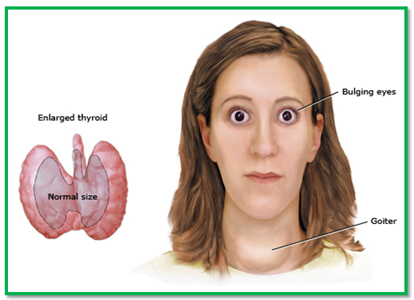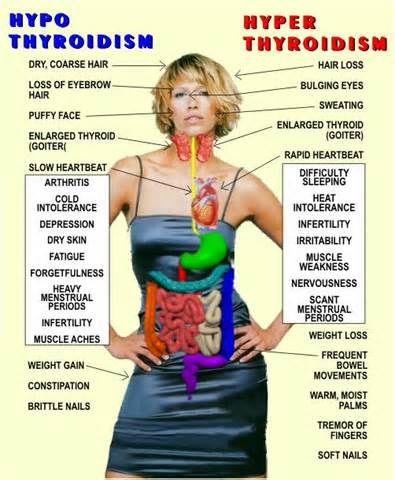
One of the most common hyperthyroidism symptoms is a fast heart rate. The feeling of a pounding heart can be a source of great distress for a patient, and a beta-blocker medication can help to calm the racing heart. This drug does not affect the thyroid hormone levels, so it is not a cure for hyperthyroidism. This is a condition that must be treated by a physician.
While this condition is usually easily treatable, it can lead to serious consequences. For example, a severe thyroid storm can cause a myxedema coma, or a myxedema comma. In such an emergency, it is vital to seek medical attention immediately. The Pol Arch Intern Med has a helpful article about what to do if your thyroid is overactive.
If you think you may have hyperthyroidism, your physician may prescribe an antithyroid medication to reduce your symptoms. This drug blocks the biochemical conversion of T4 to T3, thus suppressing the symptoms of hyperthyroidism. It can also harm your bone marrow, which is essential for making white blood cells, the body’s defense against infection. If you notice any of these symptoms, you should consult your doctor immediately.
The signs of hyperthyroidism can vary from person to person, but they are all related to the hormone. Some hyperthyroidism symptoms include increased heart rate, sweating, and tremors. If you notice any of these signs, it is time to visit a doctor. Your doctor will examine you and perform tests to confirm if hyperthyroidism is the cause. There are also treatments available for this condition, including surgery.
Other symptoms of hyperthyroidism include hot sweats, excessive sweating, and a general feeling of nervousness. Some people experience weight loss, tremors, and overeating, and these symptoms can be dangerous. If you notice any of these symptoms, you should see your doctor for a diagnosis. If you have any of these symptoms, your doctor will likely order blood tests to rule out other conditions. Symptoms of hyperthyroidism will depend on the severity of the condition.

In addition to these symptoms, hyperthyroidism can also cause rapid heartbeat and tremors. If you notice these symptoms, it’s time to contact your doctor or website as soon as possible CTH. If you have any of these symptoms, your doctor will be able to determine whether you have hyperthyroidism. Signs of this condition can range from rapid heartbeat to palpitations.
The most common cause of hyperthyroidism is Graves’ disease. In this condition, the thyroid gland produces excess amounts of the hormone. The hypothalamus and pituitary gland no longer receive signals from the thyroid gland, so it produces excess amounts of this hormone. Women with this condition are more likely to experience symptoms of fatigue, mood swings and nervousness. Some of the most common signs of hyperthyroidism are weakness and rapid heartbeat.
Rapid heartbeat is another common sign of hyperthyroidism. This is a heart disease characterized by a rapid, irregular and even chaotic heartbeat. Some patients may experience loss of weight and libido. Some patients may even experience nausea and tremors. Other possible symptoms of hyperthyroidism include: abnormal weight, rapid heartbeat, and increased risk of bone and heart disease.
Other symptoms of hyperthyroidism include an increase in heartbeat, fatigue, and tremors. In women, the condition is associated with an increase in body temperature, a rapid pulse, and irregular heartbeat. A person may experience an elevated heartbeat or a pounding heart. Some people may also experience tremors and trembling in their hands. Those who are suffering from this disorder should seek medical attention immediately to avoid the risks.
Other signs of hyperthyroidism include irregular heartbeat, enlarged thyroid gland, swollen thyroid, and red or bulging eyes. In some cases, these symptoms can be life-threatening. Visiting a doctor will require a test to determine the severity of the condition and the best course of treatment. During the course of a hyperthyroidism, the doctor may have to perform an ultrasound to determine if a specific diagnosis is present. If the problem persists for a prolonged period of time, it should be treated by a specialized medical professional.
The first step in treatment is to determine the cause of the problem. Although some symptoms of hyperthyroidism can be treated on their own, they are not treatable. However, early detection and a proper diagnosis are crucial to minimizing the risk of hyperthyroidism and treating it as soon as possible. In most cases, the condition is treatable by a healthcare provider, although it can still be dangerous.